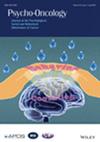‘Just Google it’—A scoping review of online mental health resources for survivors of breast cancer
IF 3.5
2区 医学
Q2 ONCOLOGY
引用次数: 0
Abstract
ObjectiveAs the Internet is a ubiquitous resource for information, we aimed to replicate a patient's Google search to identify and assess the quality of online mental health/wellbeing materials available to support women living with or beyond cancer.MethodsA Google search was performed using a key term search strategy including search strings ‘cancer’, ‘wellbeing’, ‘distress’ and ‘resources’ to identify online resources of diverse formats (i.e., factsheet, website, program, course, video, webinar, e‐book, podcast). The quality evaluation scoring tool (QUEST) was used to analyse the quality of health information provided.ResultsThe search strategy resulted in 283 resources, 117 of which met inclusion criteria across four countries: Australia, USA, UK, and Canada. Websites and factsheets were primarily retrieved. The average QUEST score was 10.04 (highest possible score is 28), indicating low quality, with 92.31% of resources lacking references to sources of information.ConclusionsOur data indicated a lack of evidence‐based support resources and engaging information available online for people living with or beyond cancer. The majority of online resources were non‐specific to breast cancer and lacked authorship and attribution.只需谷歌"--乳腺癌幸存者在线心理健康资源范围审查
由于互联网是一种无处不在的信息资源,我们旨在复制患者的谷歌搜索,以确定和评估可用于支持癌症患者或癌症后妇女的在线心理健康/福祉资料的质量。方法使用关键词搜索策略(包括搜索字符串 "癌症"、"福祉"、"困扰 "和 "资源")进行谷歌搜索,以确定各种形式的在线资源(即情况说明书、网站、程序、课程、视频、网络研讨会、电子书和播客)。质量评估评分工具 (QUEST) 用于分析所提供的健康信息的质量:澳大利亚、美国、英国和加拿大。主要检索了网站和概况介绍。平均 QUEST 得分为 10.04 分(最高分 28 分),表明质量较低,92.31% 的资源缺乏信息来源参考。结论我们的数据表明,网上缺乏针对癌症患者或癌症晚期患者的循证支持资源和吸引人的信息。大多数在线资源与乳腺癌无关,而且缺乏作者和出处。
本文章由计算机程序翻译,如有差异,请以英文原文为准。
求助全文
约1分钟内获得全文
求助全文
来源期刊

Psycho‐Oncology
医学-心理学
CiteScore
6.30
自引率
8.30%
发文量
220
审稿时长
3-8 weeks
期刊介绍:
Psycho-Oncology is concerned with the psychological, social, behavioral, and ethical aspects of cancer. This subspeciality addresses the two major psychological dimensions of cancer: the psychological responses of patients to cancer at all stages of the disease, and that of their families and caretakers; and the psychological, behavioral and social factors that may influence the disease process. Psycho-oncology is an area of multi-disciplinary interest and has boundaries with the major specialities in oncology: the clinical disciplines (surgery, medicine, pediatrics, radiotherapy), epidemiology, immunology, endocrinology, biology, pathology, bioethics, palliative care, rehabilitation medicine, clinical trials research and decision making, as well as psychiatry and psychology.
This international journal is published twelve times a year and will consider contributions to research of clinical and theoretical interest. Topics covered are wide-ranging and relate to the psychosocial aspects of cancer and AIDS-related tumors, including: epidemiology, quality of life, palliative and supportive care, psychiatry, psychology, sociology, social work, nursing and educational issues.
Special reviews are offered from time to time. There is a section reviewing recently published books. A society news section is available for the dissemination of information relating to meetings, conferences and other society-related topics. Summary proceedings of important national and international symposia falling within the aims of the journal are presented.
 求助内容:
求助内容: 应助结果提醒方式:
应助结果提醒方式:


